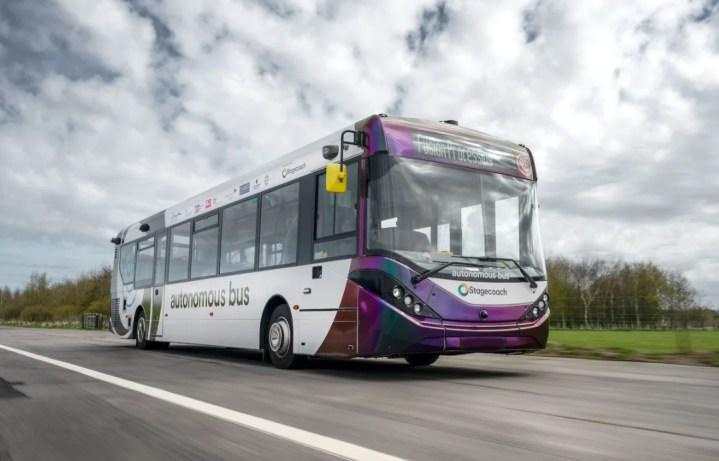A fleet of full-size autonomous buses will soon be carrying passengers in what’s said to be a “world first” for the technology.
The new service, which will start in Scotland next month, is notable for its use of large buses on regular roads, marking it out from similar services that mostly use much smaller autonomous vehicles in enclosed areas such as colleges, recreation areas, and industrial parks.

Operated by public transit firm Stagecoach, a fleet of five buses will transport around 10,000 passengers per week along a 15-mile route at speeds of up to 50 mph, the BBC reported.
The vehicles are fitted with a suite of sensors and cameras to ensure they travel safely along the specially planned route, which begins in Edinburgh and heads north across Scotland’s famous Forth Bridge.
The self-driving buses will have to deal with a range of infrastructure, including pedestrianized bus and train stations, single-lane roads, a 50-mph highway, stoplights, and traffic circles.
A safety driver will ride in the front though will only touch the controls in the event of an incident, and a second person will assist passengers with boarding, purchasing tickets, and any queries.
The project, named CAVForth, is the work of a large number of companies and organizations, including Edinburgh Napier University, Bristol Robotics Lab, and Bristol-based Fusion Processing, which helped to develop the bus’s autonomous system.
Carla Stockton-Jones, Stagecoach managing director, said: “We’re excited to introduce the U.K.’s first autonomous bus fleet in East Scotland,” adding that the service “marks a significant milestone for public transport.”
The U.K. government said the service, which begins on May 15, will be the world’s first full-size, self-driving public bus service to go into operation.
Editors' Recommendations
- Big driverless buses are now serving passengers in Scotland
- Lyft’s robo-taxis have made more than 50,000 rides in Las Vegas


